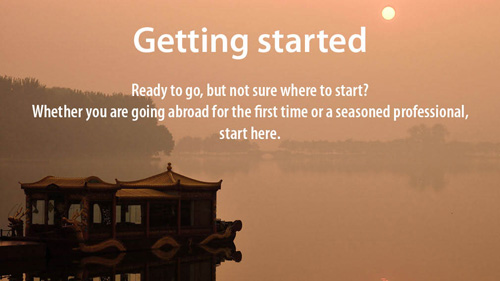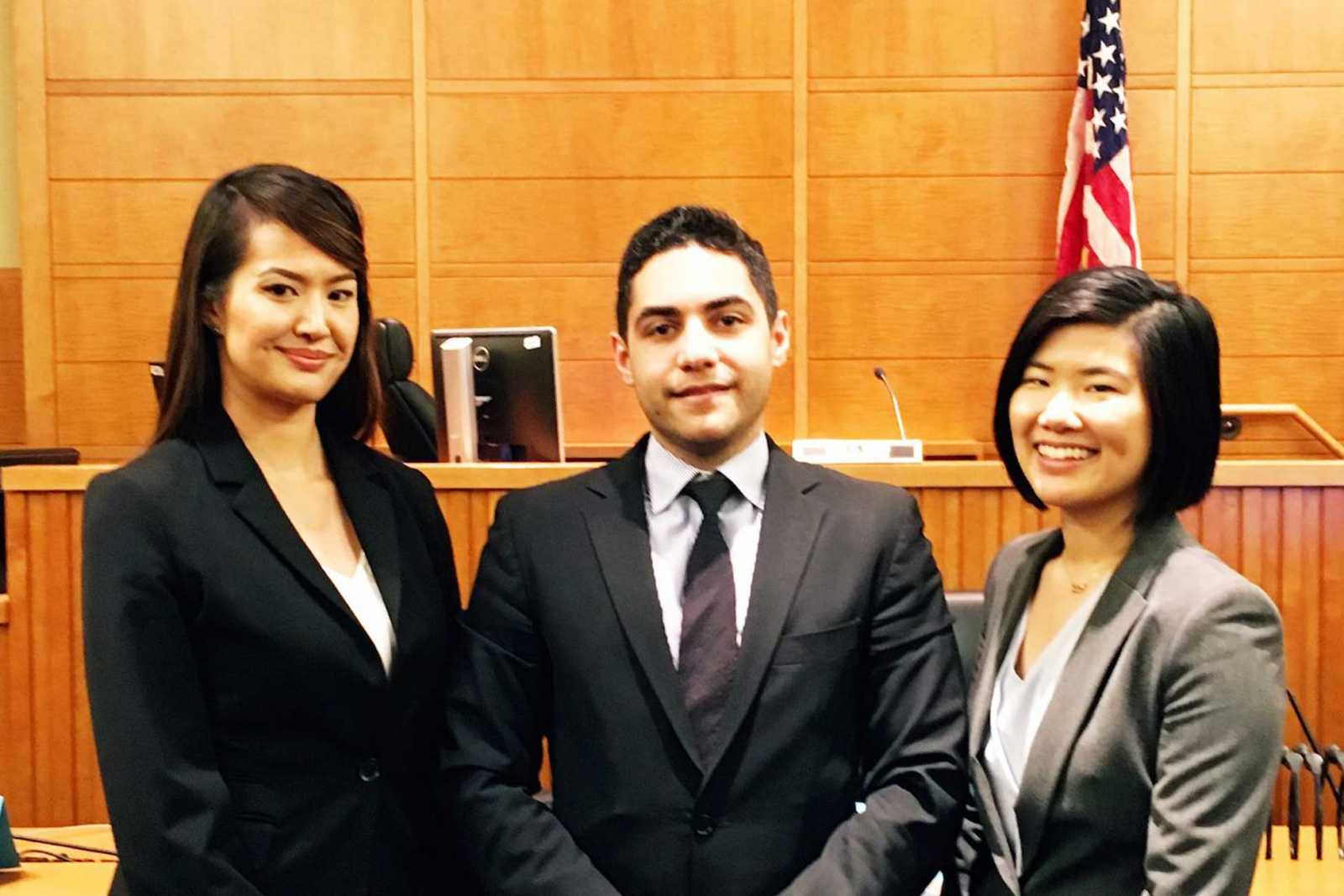- Name: Grace Lau
- Age: 25
- Current location: Hong Kong
- Home town: Newport Beach, California
- Education: BSc in Microbiology, Immunology and Molecular Genetics, University of California; Juris Doctor, J.D., Loyola Law School, Los Angeles
- Bio: I grew up in a family full of doctors and scientists. Unsurprisingly, I was geared towards science for most of my life. But when I went to university, I decided to look into other subjects of study. I took up a globalization major which necessitated taking a lot of political science courses. Needless to say I made a lot of political science friends who were aspiring lawyers and introduced me to the world of law through their pre-law society meetings. This inspired me to go to law school after receiving my science degree. Following law school and the California bar exam, I moved to Hong Kong to take a position clerking under in-house counsel at a small Venture Capital fund, aiding them with their American start-up company investments in the healthcare and biotech spheres.
- Countries I've worked in: United States, Hong Kong
- Sector / subsectors: Law
- Areas of expertise: Commercial law, finance law, transactional law
- Country: Hong Kong
- Region: Asia
- Sector: Finance & Banking, Law
- Degree subject: Law, Sciences
Tell us about the organization you work for and your role there.
I recently worked in the area of international transactional law for a Venture Capital (VC) fund in Hong Kong. It was a very small company. They invest in start-up companies in China, Hong Kong, Taiwan, and the United States. They needed someone with a working knowledge of Delaware corporate law to help with the investments in the American companies. I worked as an in-house attorney and was primarily responsible for drafting contract agreements between the investors and start-up companies.
Can you describe a day, or week in your working life to give us a better idea of what you do?
While working at the VC fund, much of my work was in the area of transactional law. I spent a lot of my time talking to VC analysts who selected the start-up companies about what they saw in the companies, why they wanted to invest, and what terms they wanted to include within the shareholder agreements. Every morning, I met with the analysts before proceeding to churn out multiple drafts of agreements. My task was to ensure the contracts were an accurate reflection of the terms the VC fund negotiated with the start-up company. Many law offices would say they work regular hours of 9 am to 6 pm, but it’s not entirely true – some days I would arrive at 9 am and stay in the office until 9 pm to ensure I got my work done.
How did you end up here? Please tell us about your career trajectory – what skills and experiences contributed to the attainment of your current role.
During law school, I hadn’t given much thought into working in the area of transactional law. The majority of my background during law school was in litigation. But I did take a course in
financing a start-up and how that intersects with the law, and I was intrigued. While waiting for my California bar results to come out, I decided to apply for this position with a VC fund in Hong Kong – and I was hired! I think I was successful because I had a really good grade in the finance and start-up course. Additionally, prior to going to law school, my undergraduate degree was in microbiology and, at the time, I was interested in doing pharmaceutical research, so I had quite a bit of experience in that area. It just so happened that my employer was investing in American pharmaceutical and biotech companies.
What’s helped me through law school and in the pursuit of jobs and internships is trying to figure out what makes me unique as a licensed attorney. The fact that I’m Chinese and can speak Cantonese quite fluently has helped me enormously in Hong Kong. Even though I would often be communicating in English when working with American companies, I spoke Cantonese with most of my colleagues. I’m not confident I would’ve gotten the job without that skillset.
What do you enjoy most about working in an international setting, both personally and professionally?
It’s exciting to get to know a new city and make it your home, whether it’s temporary, or permanent. This is an exciting aspect of working internationally – there are so many new things to see, do, and try. I can speak Cantonese, although it’s certainly not perfect. Even so, I found that people in Hong Kong were very welcoming and encouraging, despite my attempts to converse with them in broken Cantonese. People seemed to really appreciate that I was trying to communicate with them in their own language.
Professionally, I enjoyed the opportunity to learn about and practice transactional law. I wondered whether working in this area of law would be a viable option for me. Would it keep me interested and passionate for the subject? Because I was working for a small VC fund, I had the opportunity to work on a variety of contracts in a variety of situations. There was only one other attorney in the office, so I had to do much of the research myself. People might say it was intensive and daunting, but I saw it as a challenge that I loved hustling through. I think this is an exciting aspect of working with a small VC fund versus a larger firm.
Can you describe any professional challenges you encountered while working cross-culturally?
On one occasion, I travelled with my colleagues to mainland China where one of the American start-ups we were invested in had a factory. The start-up was going public, so as part of due diligence, we needed to interview the factory workers for our filing work. I was supposed to help take notes from the interview, but in mainland China, they speak only Mandarin. While I understand some conversational Mandarin, I didn’t understand enough to keep up with the Chinese attorneys asking factory workers about the process of making their product. There were many technical terms relating to pharmaceuticals. It was incredibly difficult. I came back to the office and apologized to my supervisor attorney, admitting that I hadn’t understood a single word. Fortunately, he laughed and said, ‘Don’t worry. It’s a learning experience for you. The other attorneys can provide their notes.’
For me, it really highlighted to me that if I wanted to work in Hong Kong in international law, I would need to have a working knowledge of both Cantonese and Mandarin.
What abilities and qualities does it take to be able to succeed in international law?
A working knowledge of the language that’s spoken in the country where you’re working – it’s absolutely huge. In Hong Kong, both Mandarin and Cantonese are spoken, so I need a working knowledge of both. No matter where you go, to know the language is very important. Not only is it important to be able interact with potential clients and the clients of company you’re working for, but it’s also necessary for keeping up with email correspondence. In Chinese, it was all in characters, so it’s not even like I could sound it out, or put it into Google Translate. It was very difficult to decipher.
Past that, I think to work in international law – particularly with a VC fund – it’s important for you to have sound knowledge of corporate structure and financial literacy. How does a start-up company secure funding? How does the VC make money? What kind of agreements does the VC need to put in place to protect itself? It’s critical to understand the mechanics of how finances work; how a company can evolve from a start-up to a public company on the stock market. If you don’t know, you need to learn it on your own. At first, I spent a lot of time researching Investopedia just to figure out what my boss was asking for. If you want to work for a VC fund, or represent a start-up company as their attorney, it’s vital to understand financial systems – it may be even more important than having a knowledge of law.
What kinds of jobs are out there at the moment in your field? Where do you see openings developing?
International finance law is definitely a big field. Due to the forces of globalization, international markets are increasingly intertwined and there’s a need for people with a working knowledge of laws from different systems, and as well, the financial literacy to understand how start-up companies begin, evolve, and grow – some as large as Google.
Another area that is rapidly expanding is international commercial law, which entails contracts for the sale of goods between individuals and companies, but also between two companies. For example, if a shoe store is buying a thousand cases of shoes – which is a lot of shoes – from a shoe warehouse, that would require a commercial contract.
Commercial arbitration is also really interesting to me because it deals with issues that arise from contracts made between companies in two different countries. How do you solve those issues? Whose rule of law do you apply? These are all issues that would fall under international commercial arbitration, which I find absolutely fascinating.
For people who are either just starting out in their careers or looking to move into this kind of work, what’s your best advice in terms of tangible steps a person could take to move in that direction?
When you decide to practice international law – especially in finance – you’re uprooting yourself and making the decision to commit to another country. It’s sort of like having two loves. Your home country and your new country. You need to be able to speak the language of your new love, otherwise you’re going to have a lot of marital disputes. But also you need to know what you’re getting yourself into. There is no pre-nup for this. You’re committing 100%.
You need to do your research ahead of time: what are the country’s laws on foreign attorneys practicing? How can a foreign attorney practice in that country? Do they need to be with a firm? Is there an exam you need to take? Do you need to re-license in that country? When I came to Hong Kong, I didn’t know enough about how the law works here – particularly about being licensed. I think I would have benefited from doing more research upfront.
Add to Favorites


